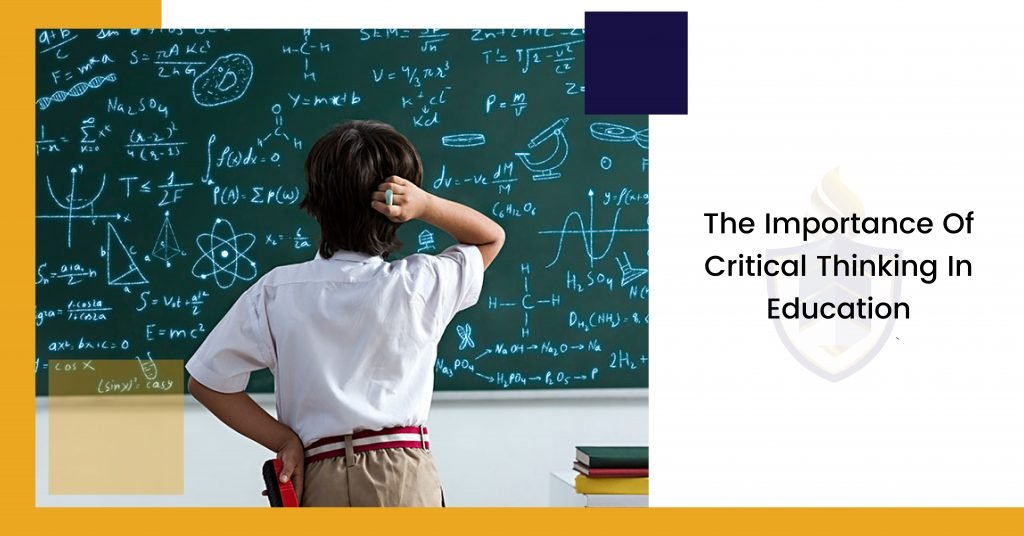Being a student in 2021 is quite different from being one is 2011. In a span of 10 years, the world of education has witnessed a sea change. As the world keeps facing new challenges, especially due to COVID-19, younger generations, and the education system they are a part of, has also become dynamic. However, there are certain foundations to any education system that has stood the test of time. One key element that has always been stressed upon and practiced by educators in the liberal education spectrum is imparting Critical Thinking skills.
Enhancing a student’s critical thinking skills is particularly essential in a liberal education model, which believes in teaching students how to think and not what to think.
Here are some of the reasons why students need critical thinking skills in today’s age-
Enhancing creativity and curiosity:
A student who is encouraged to be a critical thinker invariably develops a sense of curiosity of happenings around him/her. A strong and genuine sense of curiosity leads to students wanting to analyse and assimilate information and events. In the process, they form their own informed ideas, mostly out-of-the-box ones, that in turn improves their creativity. Creativity is a skill that all critical thinkers will dally with in their professional and personal life. In the process of finding answers in a logical and rational manner, they will usually be able to get their creative juices flowing.
Promoting self-assertion and self-reflection:
Critical thinking is essentially self-disciplined, self-monitored, and self-corrective thinking. When one thinks critically, it is done is a self-directed manner. There is an internalization of the issue at hand and a deep understanding of it in an objective fashion. Critical thinking is at the forefront of learning, as it aids a student reflect and understand their points of views. This skill helps a student figure out how to make sense of the world, based on personal observation and understanding. It makes learners self-assertive and confident as they know that the outcome is the result of a thought process that yields results. Students also gain confidence and the ability to learn from mistakes both of which are crucial in their personal and professional lives.
Boosting career prospects:
Critical thinking is not confined to the classroom. In the aftermath of COVID-19, the new economy places a lot of demand on a flexible workforce and employee’s ability to analyse information from various sources and come up with ingenuous solutions towards the same. An employee with strong critical thinking skills will be valued in a fast-changing workplace.
Nurturing problem-solvers and innovators:
One of the by-products of critical thinking skills is the ability to analyse and look at problems in a creative and constructive method. Critical thinkers are invariably good problem solvers. A good critical thinker will be able to separate facts from opinions and fiction and examine the issue from all angles before making rational decisions towards solving a problem. They will also be able to produce bias free solutions to problems, a fact that is crucial to note in the employment arena. As universal challenges like global warming, pollution, pandemics, continue to plague the world, youngsters of today – who will become the leaders of tomorrow – will be expected to take the mantle of finding effective solutions. Critical thinkers will engineer creative and lasting solutions.
Fostering allied life skills:
Critical thinking fosters allied life skills such as organisational skills, planning, open-mindedness, communication skills among others. Being a life skill by itself, critical thinking enables you to take on challenges in the personal and professional world with ease. It encourages confidence and independence, thereby shaping successful lives. As a critical thinker, one will learn from their mistakes, thereby notching up their productivity in all spheres of life.
As education takes different forms in a world hit by a pandemic, it is extremely crucial for students to possess skills like critical thinking, that will prepare them for tomorrow. After all, children of today are the leaders of tomorrow.
Thinking critically boost creativity and enhance the way we use and manage our time and critical thinking not only describes the ability to think in accordance with the rules of logic and probability, but also the ability to apply these skills to real-life problems, which are not content-independent. . Critical thinking can provide you with a more insightful understanding of yourself. It will offer you an opportunity to be objective, less emotional, and more open-minded as you appreciate others’ views and opinions. By thinking ahead, you will gain the confidence to present fresh perspectives and new insights into burden some concerns.
Critical thinking occurs when students are analyzing, evaluating, interpreting, or synthesizing information and applying creative thought to form an argument, solve a problem, or reach a conclusion. The aim of Critical Thinking is to promote independent thinking, personal autonomy and reasoned judgment in thought and action. This involves two related dimensions:
- The ability to reason well and
- The disposition to do so.
Critical thinking involves logic as well as creativity. It may involve inductive and deductive reasoning, analysis and problem-solving as well as creative, innovative and complex approaches to the resolution of issues and challenges.
One of the significant aims of education is to produce learners who are well informed, that is to say, learners should understand ideas that are important, useful, beautiful and powerful. Another is to create learners who have the appetite to think analytically and critically, to use what they know to enhance their own lives and also to contribute to their society, culture and civilization.
Every pupil should have an effective skill of critical thinking, and they must not accept anything for granted
It’s the ability of the child to think about anything and everything. An ability of critical thinking
Critical thinking should be encouraged. Traditional concepts of learning are loosing its charm. Text based passive learning is giving way to active thinking and learning process. The vital goal of education is to promote critical thinking in students, not making them reflect like a parrot. EYFS and KHDA are new terms that aim at improving the quality in education.
It’s really important to instil the ability of critical thinking in children through education. Early Years Foundation Stage is providing better guidance for children at a very tender age, they believe in individual abilities of children.
There are Government bodies such as the KHDA in Dubai who takes the responsibility of the growth and quality of private education institutions.
As far as 21st century learning is concerned, critical thinking is an important factor. Spoon-feeding system in education has changed for better. It’s an era of better education.

Dr. Mamta Singh
B.A | B.Ed | M.A | Persuing M.Ed
School Principal at Rahul Education, Queen Mary’s High School


